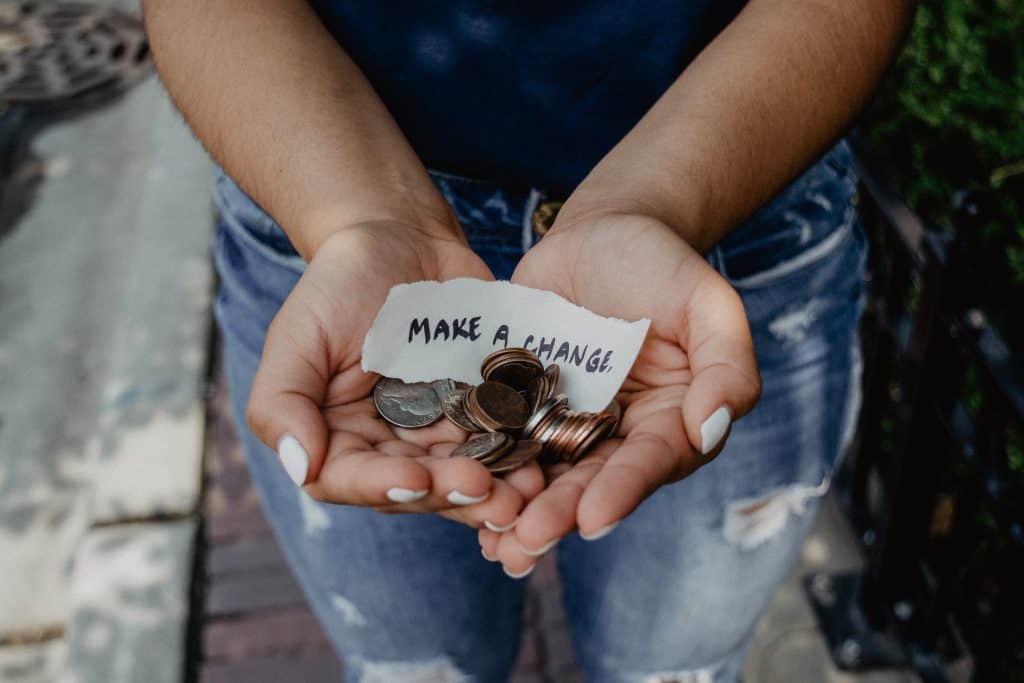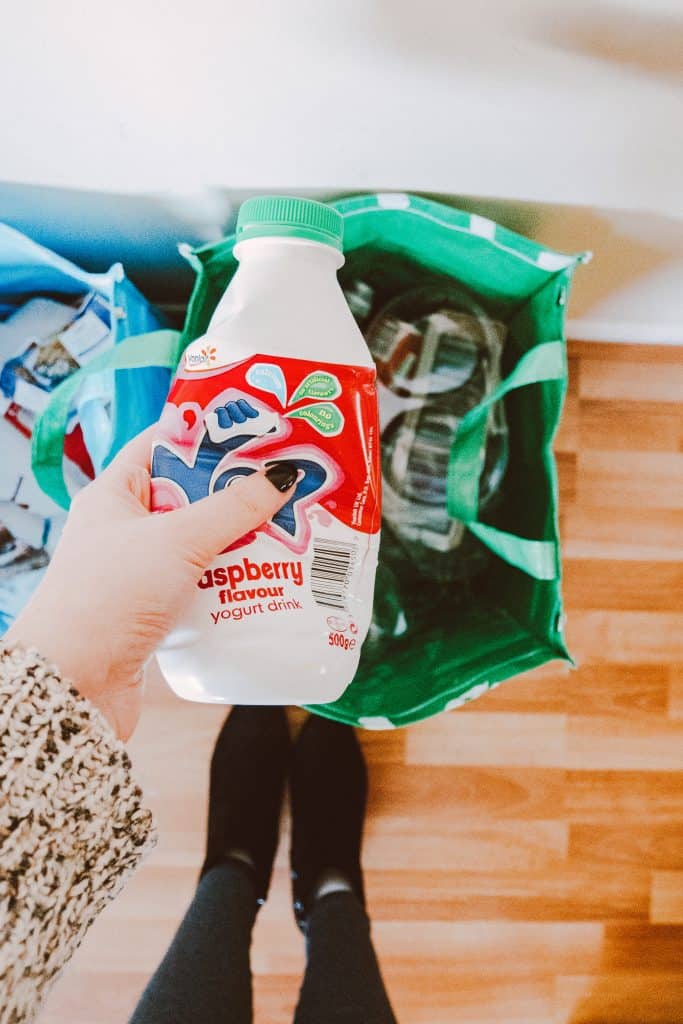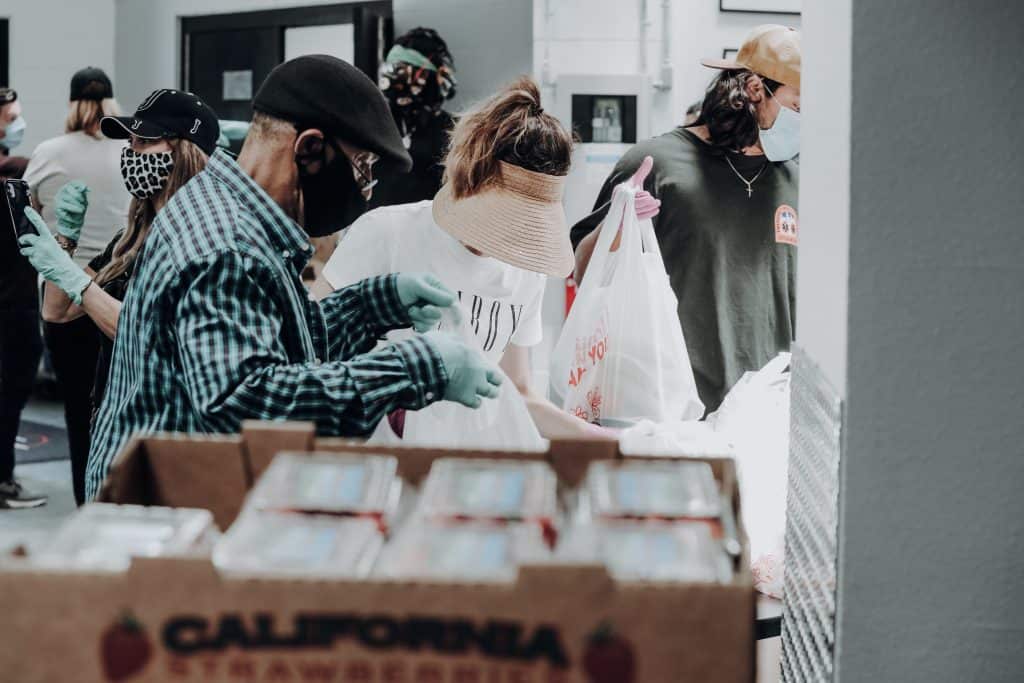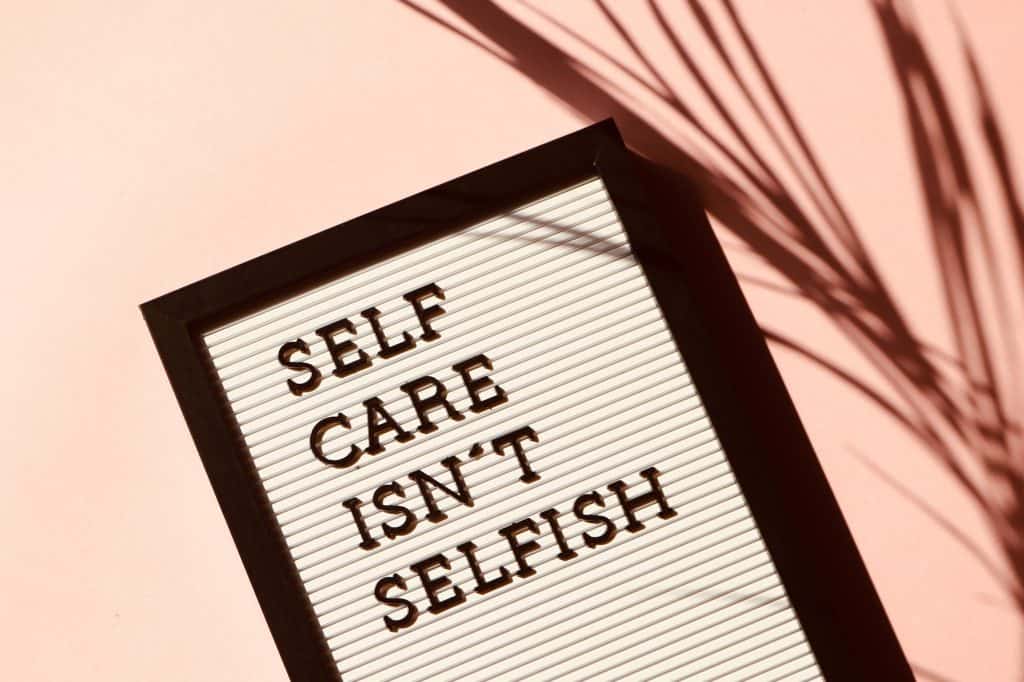Self-care and nurturing our mental health are daily practices in many of our routines. We meditate at night, write in gratitude journals every morning, set strict boundaries and follow schedules that allow us to indulge in leisurely activities.
However, nothing feels more gratifying than taking the focus off of yourself and putting it onto others. Selflessness. A little goes a long way.

What is the true definition of selflessness?
The general meaning of selflessness is to have no concern for self.
Now does this mean you completely neglect yourself to make everyone else around you happy? Of course, not.
But taking time out of your busy day to lend a helping hand at home, sharing a compliment with a stranger, or giving a pat on the back to a coworker may suffice.
You don’t have to be a martyr, philanthropist, or solve world hunger to be selfless.
Anytime we step outside of ourselves to help others who may be less fortunate, or being that ray of light inside a gloomy room; we’re engaging in acts of selflessness.
Being selfless doesn’t require you to break the bank.
Putting a smile on someone’s face despite having a bad day, offering a shoulder to lean on, or giving your last dollar to the homeless are all examples of putting someone else’s needs before your own.
What are the qualities of selfless people?
Selfless people perform random acts of kindness and generosity because it’s ingrained in who they are.
They are natural born givers, compassionate, and often put themselves into the shoes of others to empathize with their point of view.
Humility is a common trait they all share.
They take pride in seeing others win and feel a sense of satisfaction when they are supporting and motivating others to reach a level of success. Even if it means delaying progress towards goals of their own.

As society’s caregivers, they are sensitive to the plights of those who experience misfortune and never hesitate to offer help.
The selfless often take their failures in stride by viewing them as learning experiences rather than disappointments.
Their motivation doesn’t stem from personal gain. ‘What’s in it for me?’ isn’t a part of their vocabulary. They’ll give you the shirts off their backs, if you ask.
Highly sensitive people practice selflessness daily.
Often concerned with the feelings of others, they are well-known for putting personal issues aside and their own needs on the back burner to alleviate stress or pain from partners, close friends, and family members.
Their personal goals usually encompass the greater good.
The importance of selflessness for a purpose-driven life?
Imagine a world filled with people that are inherently selfish and only concerned with fulfilling their own needs and desires.
If everyone sought their personal interests, we wouldn’t be able to live in harmony. There has to be balance. Our purpose in life usually aligns with the impact we’ll have on the future, the youth, or the people around us.
Living a purpose-driven life requires a deeper look inside. Self-reflection is a must. When you discover your purpose, you’ll find selflessness at the root of it all.
It allows us to center ourselves within the universe.
From there, we can then identify God’s purpose and an end goal that benefits us and others in return. Whether your primary goal is to start a business, a non-profit organization, or to become a better person; the outcome usually helps others in some way or another.
Think about your why.
“Always do good to others. Be selfless. Mentally remove everything and be free.” – Sivananda
selflessness QuoteS
Do your personal or business goals derive from a place of selflessness?
Ask yourself the following questions to be sure:
- Do I have the answer to someone else’s problems?
- How can I encourage or assist others in pursuit of their dreams?
- How do I support my family and friends?
- How can I be more valuable at home, on the job, or in my community?
Personal growth takes place when we reach back and help others succeed.
This isn’t achievable if we only have ourselves in mind.
Most people strive for a better quality of life, not only for themselves, but for their families. Hard work and sacrifice come with even greater rewards. Selfless people don’t hoard resources or take shortcuts to get what they want out of life.
A great majority of us find happiness in relationships.

How many people would willingly trade their family or spouses in exchange for money? Monetary means are supplementary for most.
Contrary to what many may say or think, there are far less selfish people in the world. Our end goals may differ, but I’m willing to bet there’s someone in your life you’ll do anything for.
With that said, selfless people outnumber the selfish by a landslide. Helping hands make the world go round.
Want to know how you can practice selflessness in your everyday life?
15 Practical Examples of Selflessness
- Make a donation (food, clothes, or things around the house you no longer use)
- Forgive and forget – remove yourself from difficult situations; show more compassion and understanding
- Use your time and skills as valuable resources to others
- Show support to friends and family
- Listen before speaking
- Feed the homeless
- Pay it forward – pay a grocery or utility bill, pick up the meal tab
- Practice a ‘zero waste’ lifestyle or recycle
- Volunteer at your local church, community events, or animal shelter
- Visit or deliver meals to seniors
- Sign up to assist people with disabilities
- Clean up a neighborhood or local beach
- General acts of kindness – smile, hug, compliment, or share words of encouragement with a stranger
- Become a tutor or storyteller for children
- Love yourself (this one may be harder than you think!)

Related Post: How To Know If You’re A Minimalist?
What are the benefits of selflessness?
Builds character
There are certain pockets of society where the selfless thrive.
Altruistic people are effective leaders who usually hold certain roles in workplaces and organizations. We seek them for their skills and experience, but their character ultimately gets them the job.
A well-rounded, selfless person is secure with themselves; therefore, they are less likely to compete.
They step up to the plate when the road gets tough and take the brunt of the blame when mistakes occur. They promote collaborative, peaceful environments.

Selfless people have hard shoes to fill. They are special individuals who often go overlooked. Bravery and virtuousness aren’t characteristics you come by easily.
Selflessness comes with much practice, personal development, and a pure heart.
Improves relationships
Selflessness enhances relationships.
What’s better than having a spouse, close friend, or family members that pour into you everyday? Surrounding yourself with people who are genuinely happy for your personal growth and professional success are keys to healthy relationships.
Selfless individuals are imperative to friend circles, non-toxic work environments, and loving relationships. They understand the importance of give and take, honesty, listening before reacting, and viewing situations from of a different lens.
They are great communicators and are the first to show up in a bind and quick to support out of the kindness of their hearts.
Selflessness in relationships is a necessity for longevity. Toxic friendships and relationships end prematurely due to jealousy, selfishness, dishonesty, and constant negativity.
There’s no such thing as holding onto grudges when a disagreement occurs. They are the problem solvers of the world. When conflict arises they’re the mediators, or peacemakers, if you will.

Contributes to good karma
Ever heard of paying it forward? Volunteering your time for a good cause, donating money to a church or non-profit organization, caring for an elderly relative, or giving away your things has its perks.
Performing good deeds makes us ‘feel’ good, because of its intrinsic value.
Whenever you feel discouraged or down on your luck, take the focus off of your own problems and be of value to someone else. You’d be surprised of how much good karma you will receive in return.
I’m overcome with gratitude whenever I volunteer at homeless shelters and mentor at-risk youth. No, I don’t receive any accolades or monetary means in return. I volunteer because I genuinely enjoy the experience. It contributes to my personal development, and it’s my civic responsibility to do so.
I’m a firm believer in whatever you put out into the universe is what you’ll get back.
Try giving back or taking the high road for once, you’ll be rewarded tenfold.
Fosters community
We each have a job to do while we’re down here on Earth.
As members of our community, parents, family, friends, students; we all need to care for one another and the environment we live in.
Think of it as a domino effect.
We’re responsible for our own safety, but play a vital part in protecting the safety of those around us. There’s a reason why we’re neighborly, why we recycle, and follow the rules put in place.

To keep a safe and clean community, we each do our part by refraining from loitering, cleaning up after our dogs, keeping manicured lawns, and reporting suspicious behavior. An act of selflessness is looking after your neighbor’s property as if it were your own.
Recycling trash, driving hybrid cars, or practicing a zero-waste lifestyle contributes to the preservation of our environment, combats global warming, and climate change.
It’s astounding how greatly being selfless in our personal decisions impact nature and the people around us. In some way or another, we’re all working together for the common good.
“In a society that deems selflessness as the ultimate form of kindness, we often allow our personal well-being to suffer in order to put others’ needs before our own, but what we need to realize is that it’s necessary to be selfish and take care of ourselves first.”1
How to balance selflessness with self-care?
Taking care of everyone but yourself can lead to neglect. An example of selflessness is loving one’s self unapologetically.

You can’t be everything to everyone. Sometimes, choosing you is the best decision you can make when your acts of kindness are taken for granted or not reciprocated in return.
Altruistic people have a habit of giving their all until there’s nothing left on the floor; in relationships, in friendships, in work environments, a lack of concern for your well-being can be detrimental to your physical and mental health.
Setting aside time to indulge in daily self-care routines and setting boundaries is necessary.
This can be anything from a spa day, using mornings to read or meditate, or silencing the notifications on your phone. You can’t be of value to others when you’re depleted of energy and mentally exhausted.

Everyone’s cross isn’t yours to bear.
Focusing on yourself or your goals doesn’t equate to self absorption. We need to be selfish with our time, our hearts, and our commitment when appreciation isn’t shown in return.
Related Post: How To Simplify Your Life In Less Than 24 Hours?
How can I learn selflessness?
Selflessness is not a god-ordained super power. If you can change your habits, you can change your life.
Are you only concerned with your wants and desires? Do you only do things for recognition and notoriety? Taking the spotlight off of yourself and shining it onto others takes time and a little practice, but it can certainly be done.
The next time someone asks you for free advice, to volunteer your services, or donate a few dollars to a cause – don’t clench your fist. Learn how to put yourself in someone else’s shoes.
The outcome doesn’t always have to be favorable to you. Start by lending your ear or shoulder to someone who may be in bad spirits. Help out more around the house, cook a family meal, or open up your home for the holidays.
“If selfishness is the key to being miserable, then selflessness must be the key to being happy!” – Joyce Meyer
SELFlessness Quotes
Selfish people tend to have tunnel vision. They are hyper focused on their goals, obtaining financial wealth, finding a mate, or gaining notoriety. They’re competitive by nature and always put themselves first.
Selfishness is the opposite of selflessness. There are a few ways to distinguish between the two.
Selfishness VS Selflessness
Big egos
Opportunistic
Critical of others
Addicted to power
Manipulative and often confrontational
Close-minded
Competitive
Hunger for notoriety
Sensitive and supportive
Empathetic
Team players
Great listeners
Open-minded
Mediators in conflict
Natural caregivers
Compassionate
Don’t seek recognition
Does altruistic mean the same thing as selfless?
Altruistic is a selflessness synonym. Selfless and altruistic can be used interchangeably. Altruism is the practice of selfless concern for the well-being of others.
An altruistic person has a genuine love for people whether they know them personally or not. They are typically well-known in their communities for their philanthropy, volunteering their time, and advocating for others.
Altruism speaks volumes to one’s character and can also be very rewarding.
General acts of kindness are hard to ignore. Some people believe it’s their life’s mission to contribute to the greater good.
They are passionate about providing resources to underserved communities, offering their skills for free, or sharing a word to uplift others who may have fallen on hard times.
Altruistic people act out of the welfare of others without expectation of reward, but a deeper meaning in life.
When questioning their purpose, taking on a new job, or volunteering they are concerned with the lives they will touch or change. Not what it’ll cost them.
Money, perks, benefits, and popularity aren’t the driving factors for their decisions.
It’s essential that they make an impact, or reach people in a way that will improve their everyday lives.
Benefits of altruism
- Intrinsically rewarding
- Creates a sense of belonging and reduces isolation2
- Increases gratitude
- Leads to a longer, happier life
- Builds awareness
Is true love selfless?

Take a moment to think about who you would exchange the world for. For many of us it would be our families; our children, a niece or nephew, mother, spouse, possibly a close friend.
To lay your life on the line in order to save another is the ultimate sacrifice.
“Love is selfless. The key is giving up yourself.” – Zac Hanson
SELFLESSNESS Quotes
Jesus died for our sins to rescue us from the evil world in which we live. He is the true definition of love. In the Bible, our Lord and Savior performed countless acts of selflessness.
He spoke on behalf of the poor and downtrodden, healed the sick and disabled, and forgave those who treated him and his disciples unjustly.
True love is forgiving. True love is unconditional. True love is selfless.

Download the 31 Day Simple Living Challenge now available in the FREE RESOURCE LIBRARY!
I teach entrepreneurs how to simplify their life and business with less + own their time and maximize productivity towards their personal and monetary goals.





Leave a Reply